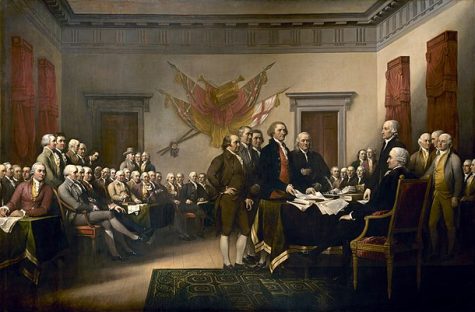
Twelve score and seven years ago our fathers brought forth upon this continent a new nation, conceived in liberty and dedicated to the proposition that all men are created equal and have the unalienable rights of life, liberty, and the pursuit of happiness. The founding fathers, as of July 4, 2023, created the nation we now know today as the United States of America precisely 247 years ago. It is critical that we celebrate the accomplishments of our founding fathers that still affect us to this day.
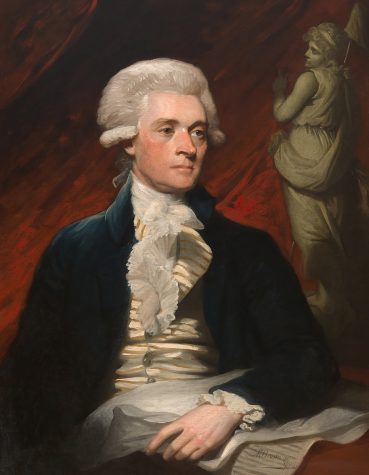
On July 2, 1776, the Continental Congress, with the exception of delegates from New York, voted unanimously in favor of the Lee Resolution, also known as independence from Great Britain. Two days later Thomas Jefferson’s document, the Declaration of Independence, was adopted by the Continental Congress; officially creating the United States of America.
This event officially gave national significance to the date July 4, 1776. The first recorded celebration of the Fourth of July happened in Philadelphia, in 1777 in spite of the ongoing war against the British forces. Even during the first annual celebration, Americans shot off fireworks and a ship’s cannon fired a 13-gun salute, honoring the now-free 13 Colonies.
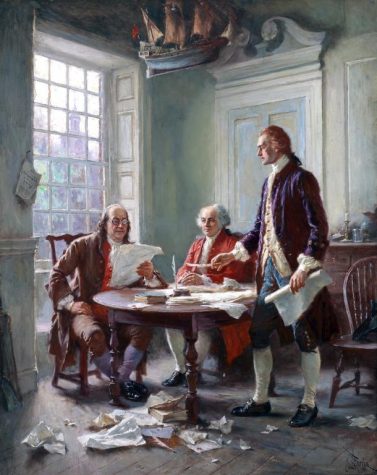
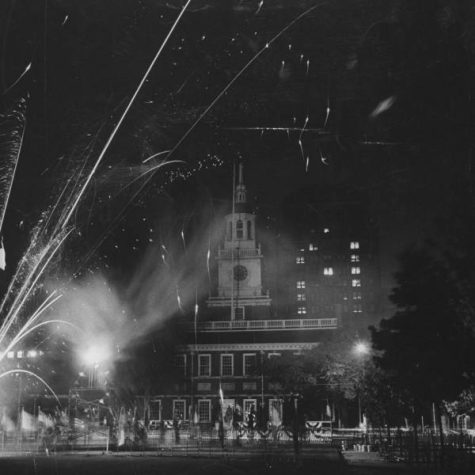
History.com states that fireworks were set off all over the country, but in Boston especially, the Sons of Liberty set off fireworks all over Boston Common.
According to the Pennsylvania Evening Post, “At night there was a grand exhibition of fireworks (which began and concluded with thirteen rockets) on the Commons, and the city was beautifully illuminated.” To this day, we still celebrate the Fourth of July as the Independence Day of the United States and celebrate it with fireworks, parades, music, and parties. To each tradition, there is a fascinating history that can help us truly understand why we celebrate the way we do.
Music
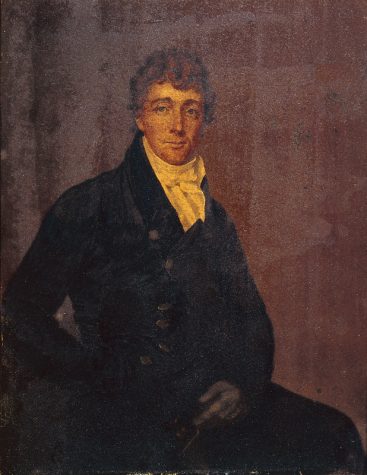
The most played song on the Fourth of July is none other than “The Star Spangled Banner,” our national anthem. This song, however, hasn’t always been our national anthem. The story goes that a young Lawyer, by the name of Francis Scott Key, went down to Baltimore to negotiate the release of a captured American civilian aboard a British ship on the evening of September 13, 1814.
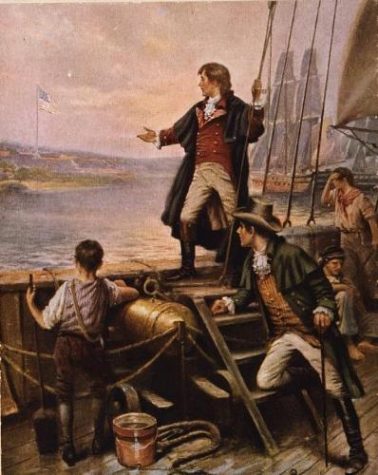
The War of 1812 was raging on between the British and American forces, and when Key was detained aboard the very British ship he boarded he managed to witness the twenty-five-hour bombardment of Fort McHenry the entirety of the night. In spite of the dramatic bombardment of Fort McHenry, the American forces came out victorious in this crucial battle.
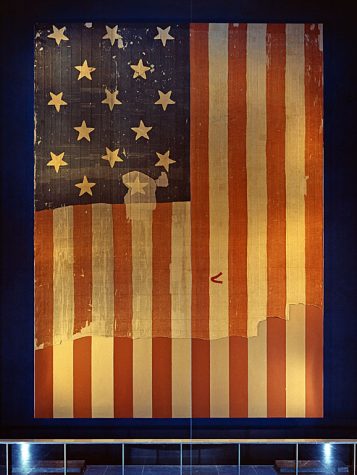
Key discovered that the American forces were victorious when a giant American flag was raised above the fort, proving that America could stand up to a great world power such as Britain. At the sight of those “broad stripes and bright stars,” Francis Scott Key was inspired to write a poem, which he titled, “The Star Spangled Banner.”
One hundred and seventeen years later, in 1931, Congress adopted the Star Spangled Banner as America’s National Anthem. Since then, the Star Spangled Banner has been the most-played song on the Fourth of July.
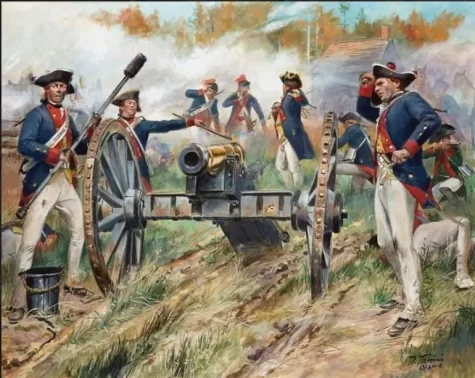
Fireworks
Fireworks, a tradition for millennia, were first used to celebrate the Fourth of July in 1777 in Philadelphia and other large cities such as Boston. A ship docked in the harbor of Philadelphia fired off 13 shots from the cannons to honor the 13 now free Colonies that comprised the United States of America. Since the first anniversary of American independence, fireworks have been a crucial part of celebrations of Independence Day.
Barbecues
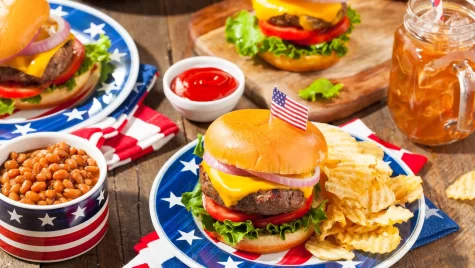
Barbecues have long been associated with Independence Day, for barbecues are the perfect way to bring together family and friends, have some delicious food, and party in celebration of, in this case, our nation’s independence from the Empire of Great Britain. This tradition is, believe it or not, much older than you may expect. It started in the late 1840s when Texans are recorded to have had barbecues to celebrate American independence.
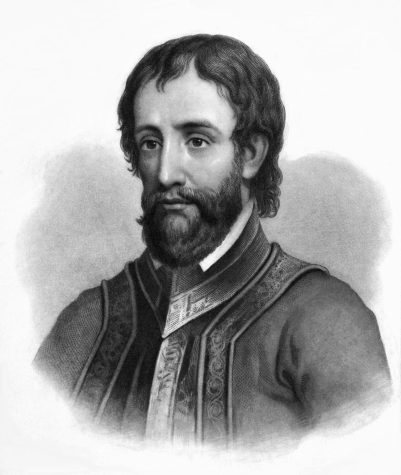
Southernliving.com states that in 1858–merely “five years after the city’s founding–the residents of Kansas City staged their first Fourth of July barbecue, which drew 3,000 attendees and featured a barbecued buffalo.” However, this is not the first recorded barbecue to have ever happened. The first barbecues are believed to have occurred in modern-day Mississippi all the way back in the 1540s between Hernando de Soto and the Native Americans.
That’s right, the American barbecue is a Southern tradition at heart, and centuries later, with Southerners traveling westward, they brought with them the tradition of barbecues. Since then the tradition has gone rampant throughout the United States, and with backyard BBQ becoming ever more popular in the 1950s, the traditional Fourth of July barbecue has been a necessary factor to any Fourth of July celebration.
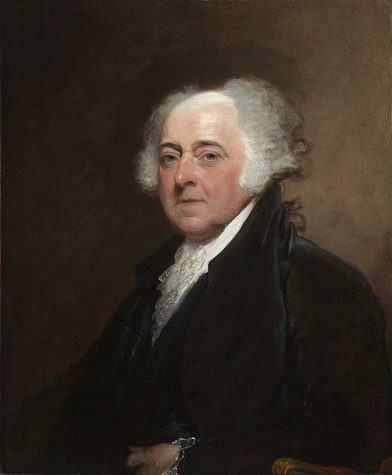
Finally, after nearly two centuries of celebrating American independence, the Fourth of July first became an unpaid federal holiday in 1938 but was finally changed into a paid federal holiday in the year 1941.
John Adams, a founding father and later second President of the United States, famously stated that “It ought to be solemnized with pomp and parade, with shows, games, sports, guns, bells, bonfires, and illuminations, from one end of this continent to the other, from this time forward forever more.” Boy, did he get what he hoped for! Happy Fourth of July and God Bless America!
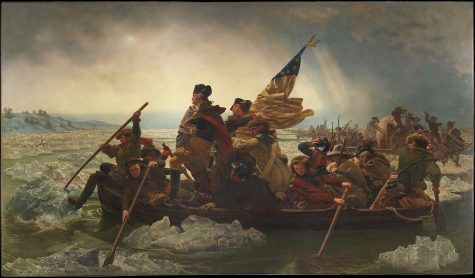
Photos courtesy of Museum of Arts & Science, The Virginia Museum of History & Culture, The Constitutional Walking Tour, the National Museum of American History, National Park Service, Star Spangled Flags, the Revolutionary War Journal, Wikipedia, National Portrait Gallery, and the Metropolitan Museum of Art
Sources: https://www.history.com/topics/holidays/july-4th
https://www.history.com/topics/holidays/july-4th
https://www.military.com/july-4th/history-of-independence-day.html
https://www.britannica.com/topic/Independence-Day-United-States-holiday
https://www.history.com/this-day-in-history/congress-votes-for-independence

